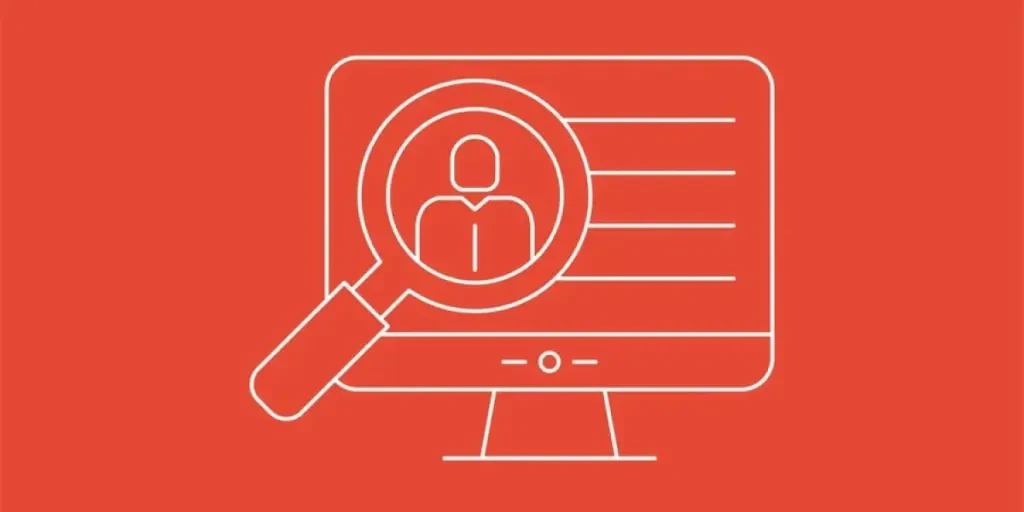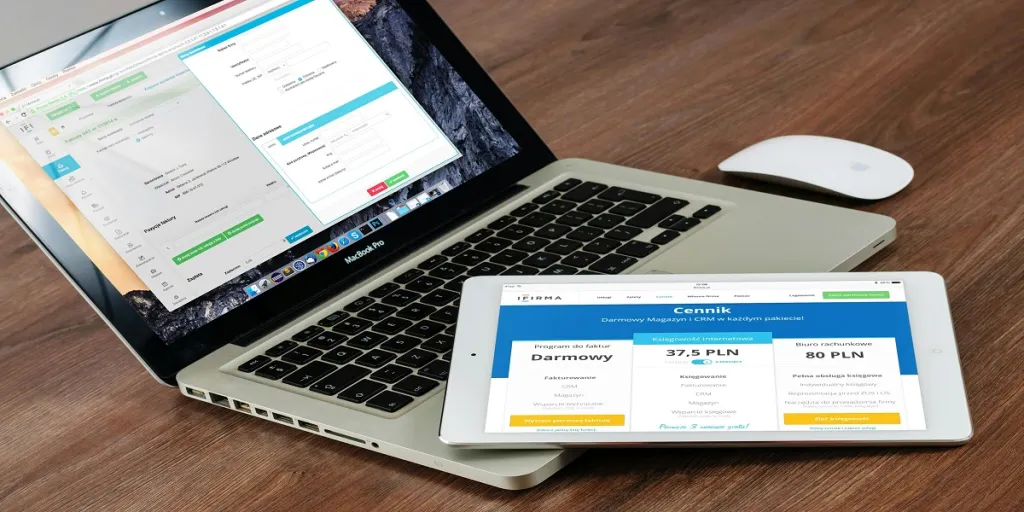Table of Contents
Strengths of HubSpot Sales Hub:
Weaknesses of HubSpot Sales Hub:
HubSpot CRM features that help create transparency:
HubSpot CRM features that improve efficiency:
HubSpot Sales Hub Starter
HubSpot Sales Hub Professional
HubSpot Sales Hub Enterprise
Bottom line:
If you’re in the market for customer relationship management (CRM) software, you’ve probably heard of HubSpot. There’s a reason this sales management software has such widespread recognition – it’s the only enterprise-level CRM that’s affordable and scalable for small to midsize sales teams.
After completing numerous HubSpot Sales Hub implementations for our clients, and using it for our own CRM needs, we’ve developed an in-depth appreciation for all that HubSpot has to offer. We detail these below, along with a few things that you should know before purchasing HubSpot Sales Hub software for your team.
HubSpot Sales Hub Strengths & Weaknesses
HubSpot is a CRM software that offers six different hubs: Sales Hub, Marketing Hub, Customer Service Hub, CMS Hub, Operations Hub, and Commerce Hub. Each hub has a Starter tier, Professional tier, and Enterprise tier. Hubs can be combined for a significant discount in HubSpot’s CRM Suite bundles. Nearly all sales capabilities are contained within HubSpot’s Sales Hub, so that’s what we’ll be discussing today.
Every CRM platform has strengths and weaknesses, and HubSpot Sales Hub is no exception. Knowing the potential pros and cons of the CRM you’re looking to purchase is an essential part of the research process. Read on to learn what we’ve discovered as experienced HubSpot users.
STRENGTHS OF HUBSPOT SALES HUB:
Great user experience from Sales Hub Starter to Sales Hub Enterprise
When choosing a CRM software, one of the most important things to look for is the combination of scalability and user experience. In other words, your sales CRM should be easy enough to use that your reps will like it and commit to using it, and it should be scalable enough to still be a good choice as your business grows.
HubSpot is the only enterprise CRM that includes every capability you could ever need, along with a great user experience for every team size and price point.
We don’t recommend other enterprise CRMs like NetSuite and ACT because of how clunky and outdated they look and feel. Salesforce and ZohoOne are not much better. We’ve found that sales teams who use these tools just don’t like using them as much as non-enterprise CRMs, and find them all to have steeper learning curves. HubSpot gives you the strength (and scalability) of an enterprise CRM without jeopardizing buy-in from your team.
Nearly unlimited sales automation capabilities
HubSpot has just about every workflow and task automation you’d ever need. Sales Hub Professional is enough automation for most teams and costs a maximum of $500/month for five users, whereas Sales Hub Starter ($20/month) is just enough automation for small teams just starting out. Either way, this is far more automation options than a non-enterprise CRM like Pipedrive.
Because HubSpot Sales Hub is one of the largest sales CRMs, there are options for integrating with nearly every software you use in the HubSpot App Marketplace. This doesn’t mean every integration will be useful to your workflow, but you have more options than you would with a non-enterprise CRM.
Affordable Sales CRM for small sales teams, with nearly unlimited capability to scale as you grow
While the entry tier CRM technically offers free tools, anyone serious about sales will want the HubSpot Sales Hub Starter plan. This is $20/month for two users ($10 per additional) and provides great sales tools for an entry-level CRM. It won’t give you automated tasks or prospecting, but it’s easy to set up, learn, and use to your advantage.
High quality sales training and resources
Regularly updating your sales skills is important, and HubSpot’s training academy and onboarding services offer incredible value. Not only are the courses for learning how to use HubSpot great, but they also have some of the best online sales training courses we’ve ever seen, and this all comes included with your subscription. The free HubSpot blog has up-to-date articles for every feature and process, as well as sales and marketing skills, concepts, methodologies, and more.
WEAKNESSES OF HUBSPOT SALES HUB:
HubSpot Sales Hub is not ideal for automated prospecting
In order to get automated email sequences, you’ll need Sales Hub Professional, with a price tag of ~$500/month. Even then, you’ll have less automated prospecting capabilities and settings than you would with a dedicated prospecting tool.
This is why we often recommend combining Sales Hub Starter with Reply, which comes out to ~$90/month for both applications and includes a good native integration between the two. One of the other sales engagement tools we recommend is Growbots, which includes both prospecting and targeting tools and also works well with HubSpot.
To do full-blown prospecting in HubSpot you’ll need Sales Hub Enterprise ($1,200/month). This HubSpot Sales Hub tier is loaded with features but is not at all worth buying if you only need it for prospecting.
HubSpot’s buying process can be annoying
HubSpot is a large company, and the sales experience can be hit or miss depending on which sales rep you get. They are open to a lot of negotiation, which can be a good thing or bad thing depending on your needs. While we appreciate when a SaaS company makes the buying process easy, being able to negotiate can play to your advantage if there’s only one feature you need from a different tier or Hub, or if you’re willing to bundle product Hubs, pay annually, or sign a long-term contract.
With a lot of marketing contacts, HubSpot Marketing Hub can be expensive
The vast majority of companies won’t experience this scaling issue. If you want to actively market to 10,000+ contacts you’ll end up spending ~$3,600 per month. Fortunately, Sales Hub doesn’t have this same problem and is much more affordable for marketing teams at scale (~$120 per user for 10+ users).
HubSpot CRM features that will revolutionize your sales process
To be successful, sales teams must have a written, enforceable, transparent, and efficient sales methodologies. The last two qualities, transparency and efficiency, are not possible without CRM features like the ones we’ve listed below.
HUBSPOT CRM FEATURES THAT HELP CREATE TRANSPARENCY:
1. Two-way email sync through the HubSpot Sales Extension
This feature, which is available for both free and paid users, is one of the simplest ways to create transparency for your team. When enabled, the HubSpot Sales extension automatically syncs all incoming and outgoing email, whether through Gmail, Outlook, or any other provider, to the corresponding contact or company in the CRM. Once this is running in the background, conversations with leads and existing customers are all recorded and accessible, making it easy for anyone to get up to speed in less time if needed.
2. HubSpot Calling and/or VoIP integrations
HubSpot calling can be a great option if outbound calls aren’t a huge part of your sales process. Each HubSpot Sales Hub tier includes a block of minutes each month (HubSpot Sales Hub Starter – 500 minutes, Sales Professional – 3,000 minutes, and Sales Hub Enterprise – 12,000 minutes), so if you’re only occasionally reaching out to customers or prospects, this might be enough to meet your needs.
When call recording is enabled, HubSpot will record every call and attach the recording to the contact record, which allows for call review and coaching, as well as the ability to listen to past conversations, which is ideal for transparency.
If you have a sales team making hundreds of calls per day, you’ll probably want to go with a VoIP that integrates well with HubSpot, like Aircall or Kixie. These more robust platforms create transparency through automatic call logging and recording, along with queues, power dialers, and other high-volume calling tools.
HubSpot Sales Hub easily connects to HubSpot Customer Service Hub to provide real-time customer support with live chat or chatbots.
3. Detailed sales analytics and custom reporting
HubSpot has solid reporting tools for both the free CRM tier and Sales Hub starter. HubSpot Sales Hub Professional and Enterprise users have access to even more robust reporting options, along with sales analytics that will help you to keep a pulse on the effectiveness and productivity of your salespeople.
Detailed activity reports and customizable dashboards mean that every member of your sales team can stay in the loop and aware of the personal and team activity metrics that will directly lead to their success.
HUBSPOT CRM FEATURES THAT IMPROVE EFFICIENCY:
Efficiency is the effort required from sales reps when moving deals through the sales process, from lead scoring to the moment you close deals. Too often, sales reps end up spending too much time on repetitive or even unnecessary tasks. By becoming more efficient, your team will be able to spend more time actually selling. Time and time again, we’ve seen that sales team efficiency translates into increased revenue.
HubSpot Sales Hub offers multiple tools to improve rep efficiency. Below, we’ve listed a few of our favorites.
1. Streamline sales emails with templates and snippets
Unlike mass email marketing templates, HubSpot sales email templates and snippets are designed for personalized, one-to-one sales emails. Creating templated emails instead of re-inventing the wheel every single time you need to reach out to a lead or customer is one of the easiest ways to increase efficiency. Canned snippets are similar to templates, but are intended for bite-sized chunks of information like specific legal terms or responses to frequently asked questions.
2. Keep leads from falling through the cracks with automated follow-up
When it comes to sales, it’s all about the follow-up. On average, only 2% of sales are made during the first point of contact. That means if you don’t follow up, even with a simple follow-up email, you’re missing out on potentially 98% of your sales. That’s no small amount.
But even knowing that follow-up is key, it’s far too easy for reps to let leads fall through the cracks. Fortunately, with HubSpot Sales Hub it’s easy to automate follow-up tasks based on time since last contact, lead behavior, and even deal stage. Sales automations are available for Sales Hub Starter to Enterprise users, so there’s no excuse for not using them to create tasks and follow-up reminders.
3. Be more consistent with sales outreach using sequences
Out of all the sales engagement tools that HubSpot Sales Hub offers, sequences might be one of the most underrated. Many confuse sequences with an auto-drip campaign, but in HubSpot sequences are actually semi-automated cadences that enable you to reach out to leads in a varied and intentional way throughout your sales process.
Basically any sales outreach activity – 1:1 emails, calls, texts, and LinkedIn messaging, along with other task reminders, can be added to a sequence with natural delays between each step.
Here’s an example:
- Day 1: Send LinkedIn connection request + send first cold email
- Day 2: If LinkedIn connection is accepted, send first LinkedIn message
- Day 5: Send second cold email
- Day 8: Send second LinkedIn message
- Day 10: Send third cold email
- Day 11: Make first phone call
- Day 16: Make second phone call
If a lead responds to an email, or schedules a meeting from your scheduling link, HubSpot can automatically unenroll them from the sequence so that you can continue the conversation organically.
Sequences are only available to HubSpot Sales Hub Professional and Enterprise users, but are definitely worth considering if your team is doing a high volume of sales outreach.
More HubSpot Sales Hub features we love to use:
- Custom properties – this allows you to track and report on the specific sales and customer data that matters to you and your business.
- Multiple deal pipelines – you can use each deal pipeline for a different product or sales process.
- Meeting scheduler – send contacts a link so they can easily book meetings at a time that works for their schedule.
- Personalized emails – use dynamic fields in templates to easily create personalized emails in seconds.
- Email tracking – get unlimited notifications when contacts view and click on tracked emails.
- Lead rotation automation – distribute incoming leads fairly to each member of your sales team.
- Sales pipeline automation – automatically create deals and move them through the sales pipeline based on pre-defined criteria.
- Document library – store and share documents with trackable links so you have clear data on which pieces of sales collateral are converting.
How to choose between Sales Hub Starter, Professional, and Enterprise
With all of the bells and whistles that HubSpot has to offer, it’s not always obvious what Sales Hub tier will best serve your needs. While each situation is unique, there are some general guidelines that will help point you in the right direction.
HUBSPOT SALES HUB STARTER
This extremely affordable HubSpot tier gives you everything you need in a basic CRM, while allowing room to grow and expand down the road.
Choose HubSpot Sales Hub Starter if:
- You only need basic CRM functionality without automations or in-depth reporting
- You’re working with a small team and limited budget
- You’re just starting out, but want to be prepared for significant growth in the near future.
HubSpot Sales Hub Starter might not be the right fit if:
- You need to automate sales processes or create custom reports
- You need multiple deal pipelines
HUBSPOT SALES HUB PROFESSIONAL
While this HubSpot tier jumps up in price, there’s also a significant increase in what you can do with Sales Hub Professional.
Choose HubSpot Sales Hub Professional if:
- You want to increase sales rep efficiency by automating follow ups and task reminders
- You need sequences, sales analytics, and playbooks
- You need lead scoring and automated lead rotation
HubSpot Sales Hub Professional might not be a good fit if:
- You want to organize users in teams
- You need custom objects, custom goals, or predictive lead scoring
- You’re integrating with Salesforce or a custom API
HUBSPOT SALES HUB ENTERPRISE
HubSpot Sales Hub Enterprise allows you to do pretty much anything you can imagine with your CRM, but it’s not cheap. HubSpot Sales Hub Professional will meet the needs of 99% of non-enterprise sales organizations, but there are a few reasons you may want to choose enterprise.
Choose HubSpot Sales Hub Enterprise if:
- You have multiple sales teams and sales managers
- You need conversation insights, custom objects, or custom goals
- You want to automate almost everything from sequence enrollments to predictive lead scoring
- You need to integrate with Salesforce or a custom API
BOTTOM LINE:
Whether you have an established sales team or are just starting out, HubSpot Sales Hub has the functionality and tools you need to manage your sales team, improve sales performance, and scale effectively.
Source from ircsalessolutions
Disclaimer: The information set forth above is provided by ircsalessolutions.com independently of Alibaba.com. Alibaba.com makes no representation and warranties as to the quality and reliability of the seller and products




